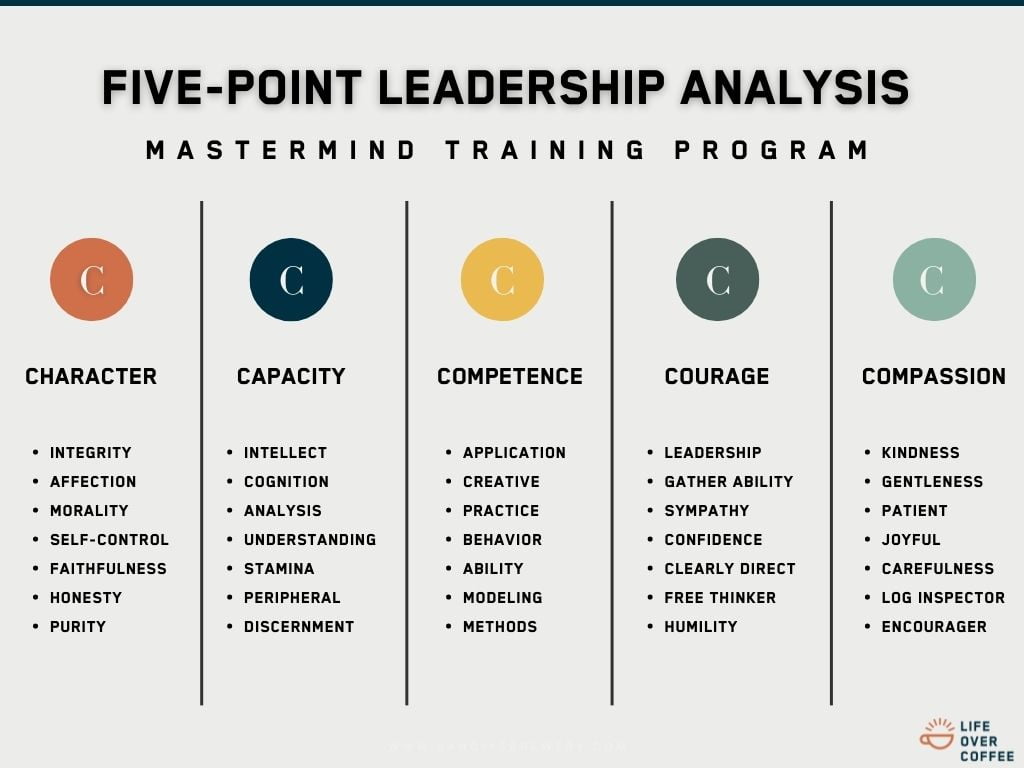Ep. 354 Response to The Rise and Fall of Mars Hill, Episode 2

Photo: ©Comstock from Photo Images via Canva.com
Shows Main Idea – Christianity Today (CT) put together a multi-episode podcast series that chronicles the story of Mars Hill Church (MH) led by Mark Driscoll. The church was planted in 1996 and dissolved in 2014. At its height, they had 15,000+ attendees/members from fifteen campuses. CT has produced this podcast series for the encouragement and admonition of the body of Christ. I will review each episode, not repeating the information in the podcasts, but hoping to put forth insights that we can apply to our lives and church cultures. This podcast reviews episode two.
Show Notes
You may want to read:
- Ep. 353 Response to The Rise and Fall of Mars Hill, Episode 1
- Ep. 354 Response to The Rise and Fall of Mars Hill, Episode 2
- Ep. 355 Response to The Rise and Fall of Mars Hill, Episode 3
- Ep. 356 Response to The Rise and Fall of Mars Hill, Episode 4
- Ep. 357 Response to The Rise and Fall of Mars Hill, Episode 5
- Ep. 358 Response to The Rise and Fall of Mars Hill, Episode 6
- Ep. 359 Response to The Rise and Fall of Mars Hill, Episode 7
- Ep. 360 Response to The Rise and Fall of Mars Hill, Episode 8
- Ep. 361 Response to The Rise and Fall of Mars Hill, Episode 9
- Ep. 362 Response to The Rise and Fall of Mars Hill, Episode 10
- Ep. 365 Response to The Rise and Fall of Mars Hill, Episode 11
- Ep. 368 Response to The Rise and Fall of Mars Hill, Episode 12
- Ep. 376 Response to The Rise and Fall of Mars Hill, Episode 13
- Ep. 381 Response to The Rise and Fall of Mars Hill, Episode 14
Episode Two: Boomers, The Big Sort, and Really, Really Big Churches
My aim in working through these episodes is to help folks think through the church they attend, the leadership culture of their church, and, potentially, identify things that might not be apparent. I will not provide a “Monday morning play-by-play” critique. I hope you will gain personal insight through this review as well as applications to your teachers and the church you attend.
Episode Caveats
- Christianity Today is “woke.”
- They provide virtually no Bible.
- You must supply a sufficiency of Scripture worldview to what they are presenting.
- In this episode, some of the folks they put forth to explain the rise and fall of Mars Hill are Rick Warren, Aimee Semple McPherson, Robert Schuller, Bill Hybels, and Kristen Du Mez. These folks are either heretics, popularizers, fallen individuals, or don’t hold to a strong sufficiency of Scripture worldview. You’ll hear a cavalcade of non-believers, heretics, woke-sters, progressives, “former Christians” (Josh Harris), and other folks who align more with CT than historical Christianity throughout this series.
- If you’re going to talk about the rise and fall of a preacher or church:
- You should bring an authority of Scripture perspective to it.
- You should interview those who stand on the authority of Scripture.
- You should speak with Christians who have a high view of the local church.
Podcast Review
- The point of CT’s Episode Two was how specific people built large churches though Mike was not clear on the point other than giving us the title: Boomers, The Big Sort, and Really, Really Big Churches.
- Three-quarters of the podcast was a historical journey on the mega-church movement from the mid-eighties until today. The final part talked about Mark Driscoll but with a vague point.
- Mike opened with Rick Warren, and then he talked about Charles Spurgeon, D. L. Moody, and Aimee Semple McPherson, all predecessors of the current big church movement.
- Then he transitioned to Robert Schuller. Mike called Shuller’s preaching progressive rather than heretical, which points to his and CT’s “theological softness.”
- Later, Mike mentions Kristen Du Mez, the author of Jesus and John Wayne: How White Evangelicals Corrupted a Faith and Fractured a Nation, without caveat, as though she is an authority on the problems in evangelicalism. She’s a liberal, social justice warrior with an agenda against masculinity, but she fits within a CT worldview.
- Mike also gave a brief history of Chuck Smith and Lonnie Frisbee and the Calvary Chapel and Vineyard movements.
My Takeaways
1 – Jesus: The verse that became louder and louder throughout the podcast was “He must increase; I must decrease” (John 3:30). No question, Mark Driscoll was big and God was small. Many of the other celebrity preachers Mike talked about are the same.
- Do you make more of Jesus or yourself?
- Do you make more of Jesus or your pastor?
2 – Pragmatism: There was a critical moment Mike presented when Mark Driscoll was speaking to Robert Schuller at the Crystal Cathedral. Mark said, “I yell a lot and get excited. It’s working.” I talked about pragmatism in my review of episode one.
- Is there a temptation with you to become something you are not or some other hope-filled result? E.g., some ministry leaders are more like actors in the public space, which is so different from who they are in private. They live dichotomized lives.

3 – Leader Qualities: Mike made an excellent point about the divergence between a leader’s charisma and character. If you place the accent mark on charisma, you will build upon the leader’s personality. If you put the accent mark on the character, Christ will be big, which will be a completely different kind of leader and church experience.
- When you think of your leader, does his charisma or character come to mind first?
4 – Charismatic Leader: With charismatic leaders, the church turns inward with a focus on the leader—his qualities: charisma, vision, boldness, and even narcissism. People will say, “Come hear my pastor; he’s terrific” (John 3:30).
If you place charisma over character, the pastor will be the de facto leader, and he’ll soon demand loyalty over honesty. You will self-censor.
Irony: The Crystal Cathedral filed for bankruptcy in 2010, and they sold it in 2012. Mars Hill dissolved in 2014. Bill Hybels and Willow Creek have their story of dysfunction too. The organizations built the ministries on the charisma of the leaders.
- Is your leader entreatable or defensive when you bring negative assessments to him?
5 – Leader or Scripture: Oswald Chambers said, “An unguarded strength is a double weakness.” Mark Driscoll had several unguarded strengths. Mike was interviewing someone who talked about Mark not having flaws but features, and then this person listed some of Mark’s features: sharp tongue, a quick mind, and bravado. They built a ministry on those features, among others.
Without biblical authority as the main thing and the character of the leader as the primary quality, the charismatic church leader becomes the authority, and the followership will realign themselves to what the pastor sanctions. He is the authority.
- Are you more aware of what your leader expects from you or what God’s Word expects from you?
Call to Action
- Who is the most prominent person in your church? Christ? Or some other personality?
- How strong is the temptation to get out of your lane by manipulating methods and practices to grow your numbers, become more famous, or present yourself as something that you are not?
- How did you answer the questions under three, four, and five?
Need More Help?
- If you want to learn more from us, you may search this site for thousands of resources—articles, podcasts, videos, graphics, and more. Please spend time studying the ones that interest you. They are free.
- If you want to talk to us, we have private forums for those who support this ministry financially. Please consider supporting us here if you would like to help us keep our resources free.

Rick launched the Life Over Coffee global training network in 2008 to bring hope and help for you and others by creating resources that spark conversations for transformation. His primary responsibilities are resource creation and leadership development, which he does through speaking, writing, podcasting, and educating.
In 1990 he earned a BA in Theology and, in 1991, a BS in Education. In 1993, he received his ordination into Christian ministry, and in 2000 he graduated with an MA in Counseling from The Master’s University. In 2006 he was recognized as a Fellow of the Association of Certified Biblical Counselors (ACBC).


